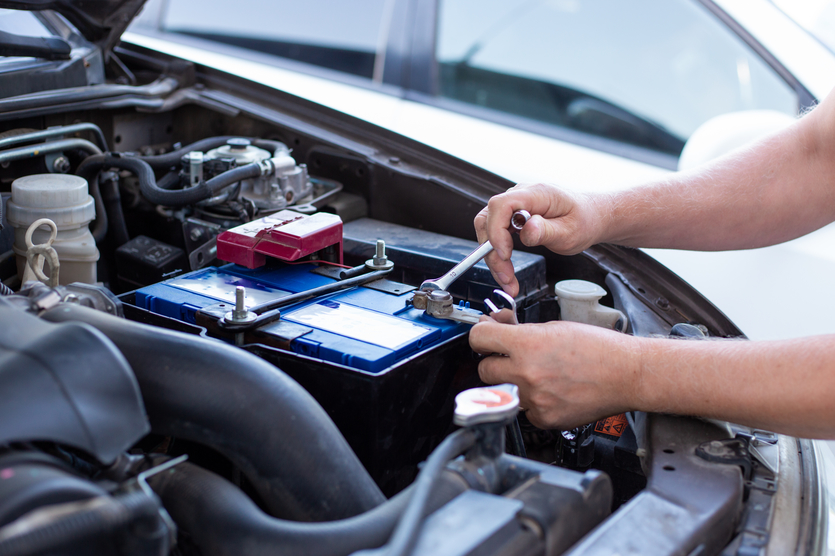Lithium-ion Battery: The Core Technology of Modern Energy Storage
Lithium-ion battery, as one of the core technologies in the field of modern energy storage, has been attracting attention since its birth with its excellent performance and wide application prospects. This article will deeply explore the basic principles, structural composition and unique advantages of lithium-ion batteries in energy storage, and reveal the secrets of this technological product to you.
1. Basic Principles
Li-ion battery is a secondary battery, that is, a rechargeable battery, and its working principle mainly depends on the movement of lithium ions between the positive electrode and the negative electrode. During the charging process, lithium ions are deintercalated from the positive electrode material and embedded into the negative electrode material through the electrolyte, making the negative electrode in a lithium-rich state; while during the discharging process, lithium ions are deintercalated from the negative electrode material and returned to the positive electrode through the electrolyte to complete a complete charging and discharging cycle. This process is commonly referred to as the “rocking chair battery” effect.

2. Structural Composition
The structure of Li-ion battery is relatively complex, but it mainly consists of the following main parts:
Positive electrode: The positive electrode is an important component of lithium-ion batteries, and usually uses lithium-containing oxides as active materials, such as lithium cobalt oxide (LixCoO2). The choice of positive electrode material directly affects the performance of the battery, including energy density, cycle life, etc.
Negative electrode: The negative electrode usually uses carbon materials such as graphite or petroleum coke as active materials. These materials have good lithium insertion properties and can receive lithium ions that migrate from the positive electrode during charging.
Electrolyte: The electrolyte is the channel for lithium ion migration in Li-ion batteries, usually a solution of organic solvents and lithium salts. The performance of the electrolyte directly affects the ionic conductivity and safety of the battery.
Diaphragm: The diaphragm is located between the positive and negative electrodes to prevent short circuits caused by direct contact between the two electrodes. The diaphragm also allows lithium ions to pass through to complete the charge and discharge process.
Battery case: The battery case is used to encapsulate all of the components inside the battery and protect the battery from the external environment. Common battery case materials include steel cases and aluminum cases.

3. Unique Advantages
The reason why lithium-ion batteries can occupy an important position in the field of energy storage is mainly due to the following unique advantages:
High energy density: Lithium-ion batteries have high energy density and can store a large amount of electrical energy in a small volume, which is particularly important for applications such as portable electronic devices and electric vehicles.
Long cycle life: Lithium-ion batteries have a long cycle life and can maintain a high level of performance after multiple charge and discharge cycles, reducing the cost of ownership.
No memory effect: Compared to early nickel-cadmium batteries and nickel-metal hydride batteries, lithium-ion batteries have the characteristics of no memory effect, that is, the battery capacity does not decrease due to partial discharge.
Low self-discharge rate: Lithium-ion batteries have a low self-discharge rate and can maintain a high power level when not used for a long time.
Environmentally friendly: Lithium-ion batteries do not contain harmful substances such as heavy metals and have a low impact on the environment. At the same time, with the advancement of recycling technology, the recycling rate of lithium-ion batteries is also increasing.
In summary, lithium-ion batteries have become one of the core technologies in the field of modern energy storage with excellent performance and wide application prospects. Through continuous technological innovation and process improvement, the performance of lithium-ion batteries will be further enhanced, providing more convenient and efficient energy solutions for people’s daily lives and industrial production.
-
 As energy storage technology continues to evolve, more and more people are turning to lithium iron phosphate (LifePO4) batteries for their energy needs. These batteries are known for their high energy density, long cycle life, and low self-discharge rate. With so many different options available on the market, it can be difficult to know which one is right for your...Read more
As energy storage technology continues to evolve, more and more people are turning to lithium iron phosphate (LifePO4) batteries for their energy needs. These batteries are known for their high energy density, long cycle life, and low self-discharge rate. With so many different options available on the market, it can be difficult to know which one is right for your...Read more -
 In recent years, there has been a growing concern about the need to transition towards cleaner and more sustainable sources of energy. With the increasing demand for electricity and the urgency to reduce greenhouse gas emissions, the energy industry has been forced to explore new technologies and innovations. Two of the most promising advancements that are revolutionizing the energy industry...Read more
In recent years, there has been a growing concern about the need to transition towards cleaner and more sustainable sources of energy. With the increasing demand for electricity and the urgency to reduce greenhouse gas emissions, the energy industry has been forced to explore new technologies and innovations. Two of the most promising advancements that are revolutionizing the energy industry...Read more -
 Introduction: Our 12V 100Ah LiFePO4 battery is the perfect solution for powering up your devices efficiently. Whether you're using it for your RV, boat, or solar panel system, this battery is designed to provide reliable and consistent performance. Features: 1. High energy density: Our LiFePO4 battery has a higher energy density than other batteries, which means it can...Read more
Introduction: Our 12V 100Ah LiFePO4 battery is the perfect solution for powering up your devices efficiently. Whether you're using it for your RV, boat, or solar panel system, this battery is designed to provide reliable and consistent performance. Features: 1. High energy density: Our LiFePO4 battery has a higher energy density than other batteries, which means it can...Read more -
 Introduction: In the world of batteries, the demand for long-lasting power is constantly increasing. Whether it\'s in the automotive industry, renewable energy systems, or portable devices, having a reliable and high-capacity battery is crucial. One such battery that has gained immense popularity is the High Capacity 12V LiFePO4 Battery, with a whopping 100Ah capacity. In this article, we will explore...Read more
Introduction: In the world of batteries, the demand for long-lasting power is constantly increasing. Whether it\'s in the automotive industry, renewable energy systems, or portable devices, having a reliable and high-capacity battery is crucial. One such battery that has gained immense popularity is the High Capacity 12V LiFePO4 Battery, with a whopping 100Ah capacity. In this article, we will explore...Read more -
 A locomotive starter battery is an essential component of any locomotive engine. Without a reliable power source, the engine cannot be started, and the locomotive cannot move. In this article, we will discuss the importance of a locomotive starter battery and how it works.Firstly, let\'s discuss what a locomotive starter battery is. It is a heavy-duty battery that is designed...Read more
A locomotive starter battery is an essential component of any locomotive engine. Without a reliable power source, the engine cannot be started, and the locomotive cannot move. In this article, we will discuss the importance of a locomotive starter battery and how it works.Firstly, let\'s discuss what a locomotive starter battery is. It is a heavy-duty battery that is designed...Read more -
 Introduction: Where technology is an integral part of our lives, having a reliable power solution is crucial. The High Capacity 12V LiFePO4 Battery, with its impressive 100Ah capacity, offers an efficient and long-lasting power solution. This article will discuss the features, benefits, and applications of this battery, highlighting why it is an excellent choice for various power needs. Features:...Read more
Introduction: Where technology is an integral part of our lives, having a reliable power solution is crucial. The High Capacity 12V LiFePO4 Battery, with its impressive 100Ah capacity, offers an efficient and long-lasting power solution. This article will discuss the features, benefits, and applications of this battery, highlighting why it is an excellent choice for various power needs. Features:...Read more -
 Introduction Lithium batteries are rechargeable batteries that are commonly used in portable electronic devices and electric vehicles. They are popular because they have a high energy density, meaning they can store a large amount of energy in a small volume or weight. This makes them ideal for use in portable devices that require a long-lasting battery. In this article,...Read more
Introduction Lithium batteries are rechargeable batteries that are commonly used in portable electronic devices and electric vehicles. They are popular because they have a high energy density, meaning they can store a large amount of energy in a small volume or weight. This makes them ideal for use in portable devices that require a long-lasting battery. In this article,...Read more

